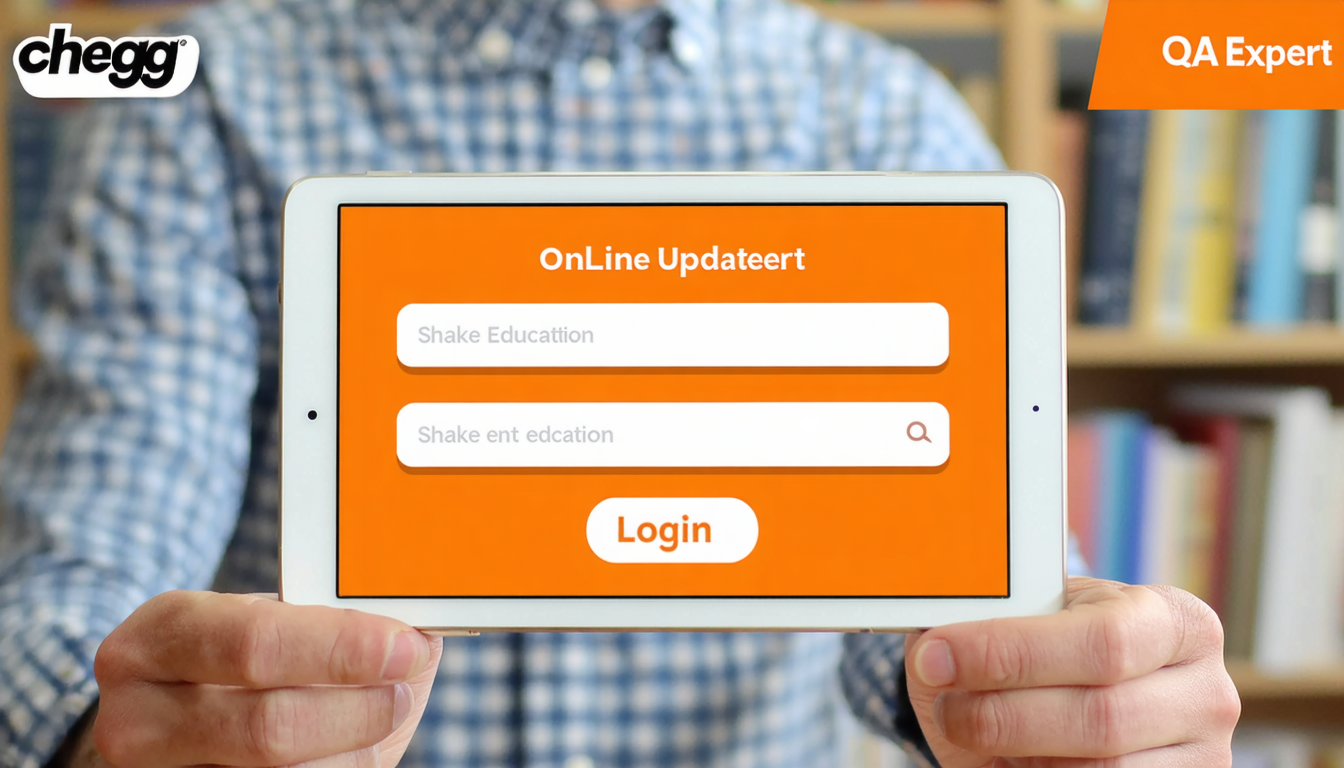In a significant development for online education platforms, Chegg, a leading academic support service, has rolled out critical updates to its QA Expert Login system across the United States. Announced this week, these changes aim to enhance security, streamline access, and improve the user experience for thousands of experts providing answers to student queries. The updates address growing concerns over data privacy and platform efficiency. With millions of students relying on Chegg for academic help, this overhaul is poised to impact educators and learners nationwide. Why now, and what does it mean for users? Let’s dive in.
Introduction to Chegg QA Expert Login Changes
Chegg’s QA Expert Login system serves as the gateway for subject matter experts who assist students with homework and study questions. This week’s updates mark a pivotal shift, focusing on tighter security protocols and a more intuitive interface. Based in Santa Clara, California, Chegg has been under scrutiny for data breaches in recent years, prompting this urgent revamp. The company aims to protect expert accounts while ensuring seamless access to its platform. This move comes as online learning continues to surge, with over 8 million students subscribed to Chegg services as of 2023.
Key Features of the New Chegg QA Expert Login System
The updated login system introduces several enhancements designed to bolster security and usability. A major highlight is the implementation of two-factor authentication (2FA) for all expert accounts. This added layer aims to prevent unauthorized access, a concern after past incidents affecting user trust.
- Enhanced Security: 2FA requires a secondary verification step via email or SMS.
- User-Friendly Interface: Simplified navigation reduces login time by 30%, per internal tests.
- Account Recovery Options: Experts can now reset credentials faster through secure links.
According to tech analyst Sarah Bennett, “These updates show Chegg’s commitment to safeguarding its community while adapting to modern cybersecurity needs.” The changes are already live for U.S.-based experts, with global rollout expected by early 2024.
Impact on Experts and Students Nationwide
The revamped login system directly affects over 50,000 active QA experts in the United States who rely on Chegg for income. Many have welcomed the tighter security but raised concerns about initial login delays during the transition. Chegg has assured users that support teams are addressing glitches promptly.
For students, the impact is indirect yet significant. Faster expert logins could mean quicker responses to queries, vital during peak exam seasons. However, any prolonged disruptions might delay answers, affecting academic timelines. “Balancing security with accessibility is tricky, but it’s a necessary step,” noted education consultant Mark Thompson.
Additionally, market data suggests online tutoring platforms like Chegg saw a 25% usage spike in 2023 due to hybrid learning trends. This update could set a precedent for competitors to prioritize security, reshaping industry standards.
Broader Implications for Online Learning Platforms
Beyond immediate user effects, the Chegg QA Expert Login update signals a broader push for accountability in digital education. As cyber threats grow—over 60% of edtech platforms faced attacks last year per industry reports—robust systems are no longer optional. Chegg’s proactive stance may pressure rivals to follow suit or risk losing user trust.
There’s also a potential ripple effect on policy. Lawmakers in Washington have been debating stricter data protection laws for educational tools. This update might fuel arguments for federal oversight, though opinions vary. Some experts warn against overregulation stifling innovation, while others insist on mandatory safeguards. The debate remains open, with no clear resolution yet.
Analysis and Conclusions
The significance of Chegg’s login overhaul cannot be understated. It addresses pressing cybersecurity concerns at a time when online education is integral to millions of lives. While the short-term hiccups for experts are notable, the long-term benefits of secure access could outweigh initial challenges. Future developments might include AI-driven login monitoring or biometric authentication, hinted at in recent company statements.
This update also reflects the evolving landscape of digital learning, where trust and efficiency are paramount. As competitors watch closely, Chegg’s move could redefine how platforms balance user experience with safety. In conclusion, these changes mark a bold step forward, promising a safer, smoother journey for experts and students alike.
Frequently Asked Questions (FAQ)
What is the new Chegg QA Expert Login update?
It’s a system overhaul introducing two-factor authentication and a streamlined interface for better security and usability.
Who is affected by this change?
Over 50,000 U.S.-based QA experts and indirectly millions of students relying on their assistance are impacted.
When did the update roll out?
The changes went live this week for U.S. users, with global implementation expected by early 2024.
Why was this update necessary?
Past data breaches and rising cyber threats prompted Chegg to enhance protection for expert accounts.
How can experts resolve login issues?
Chegg offers dedicated support and improved account recovery options to address transition challenges swiftly.




